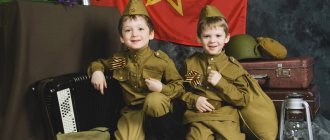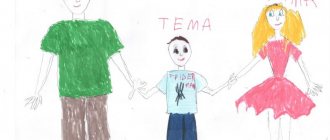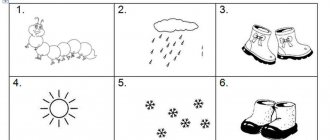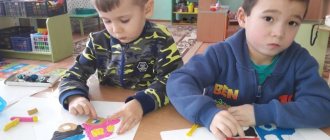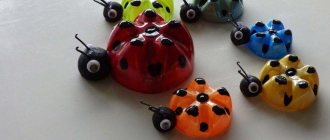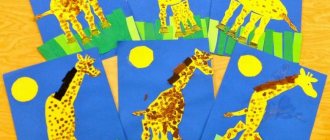Stories about the Motherland for schoolchildren
Stories about love for the Motherland, even in a foreign land there is longing and very strong sadness for the Motherland.
Evgeny Permyak. The Tale of the Great Bell
The sailor who arrived in England by ship and fell ill in the city of London has long been dead, but the fairy tale about him lives on.
The Russian sailor remained in the city of London. He was admitted to a good hospital. Provisions and money were left:
- Get well, friend, and wait for your ship!
The ship's buddies said so and headed back to their native Russian land.
The sailor was ill for a short time. He was treated with good medicine. They didn’t spare any medicine, powders or drops. Well, yes, life took its toll. The guy is of Arkhangelsk blood - the son of native Pomeranian parents. Can you really break someone like that with illness?
The sailor was discharged from the hospital. I cleaned the jacket and polished the buttons. Well, the rest of the clothing received a hot iron. I went to the harbor to look for fellow countrymen.
“Your fellow countrymen are not here,” they tell him in the harbor. — Iceland has been driving away fogs for three weeks. Why would there be Russian sails in London?
“It’s no problem,” says the sailor. - I'm big-eyed. And I will find fellow countrymen on your ships.
He said so and stepped onto the English ship. He wiped his feet on the mat and saluted the flag. Introduced himself.
The British love it. Because the maritime order is the same everywhere.
- Look what you are like! A sailor in full uniform. It’s just a pity that you won’t find any fellow countrymen on our royal ship.
And the sailor smiles at this, says nothing, and heads towards the mainmast.
“Why,” the sailors think, “does he need our mainmast? »
And the Russian sailor came up to her, stroked her with his hand and said:
- Hello, fellow countrywoman, Arkhangelsk pine!
The mast woke up and came to life.
It was as if I had woken up from a long sleep. She rustled with the Russian mast pine forest and shed an amber resin tear:
- Hello, fellow countryman! Tell me how things are going at home.
The English sailors looked at each other:
- Look how big-eyed you are! I found a fellow countrywoman on our ship.
Meanwhile, the sailor is having intimate conversations with the mainmast. What's going on at home, he tells, hugs the mast:
- Oh, my dear, you are good! You mast miracle tree. The forest winds did not blow your spirit away. The storm did not bend your pride.
The English sailors look - and the sides of the ship smile at the Russian sailor, the deck spreads under his feet. And he recognizes in them a pattern dear to his heart, he sees his native forests and groves.
- Look how many fellow countrymen he has! “It’s like being at home on a foreign ship,” the English sailors whisper to themselves. - And the sails flock to it.
The flax sails cling to the sailor, and the ship's hemp mooring ropes at his feet twist as if they were clinging to their own.
- Why do the sails flock to you? - asks the captain. “They were woven in our city of London.”
“That’s true,” the sailor answers. - Only before this they grew as fiber flax on Pskov land. How can I not love them! Yes, and take the same ropes. And after all, we have four or five arshins of hemp. That's why they came to you.
The sailor says this, but he himself glances sideways at the anchors and glances at the guns. In those years, our iron, our copper, our cast iron from the Ural Mountains went to many countries: to Sweden, to Norway, to England.
- Well, what a good company I found myself in! - the sailor rejoices.
- Oh, what a big-eyed Russian sailor you are! You can see your family everywhere. It's expensive, obviously, it's for you.
“Expensive,” the sailor answered and began to tell such things about our region that the swell of the sea subsided and the seagulls landed on the water.
The whole team listened.
And at this time, the clock began to chime in the main London bell tower. The big bell was struck. Far away its velvety ringing floated over the fields, forests, rivers and went over the sea.
The Russian sailor listens to this ringing and cannot hear enough. He even closed his eyes. And the ringing spreads further and further, on a low, sloping wave it rocks you to sleep. There is no equal voice in all the bell towers of old England. The old man will stop, sigh, the girl will smile, the child will become silent when this big bell rings.
They are silent on the ship, listening. They love that the Russian sailor liked the sound of their bell.
Here the sailors, laughing, ask the sailor:
“Didn’t you recognize your fellow countryman in the bell again?”
And the sailor answered them:
“I can’t say for sure, but the bell’s voice is familiar.” With a Moscow accent, with a Russian drawl.
The English captain was surprised how a Russian sailor could not only see his native land, but also hear it. He was surprised, but didn’t say anything about the bell, although he knew for certain that Russian craftsmen in Muscovy cast this bell for England and Russian blacksmiths forged the perfect language for it.
The ship's captain remained silent. And for whatever reason he kept silent, the fairy tale is silent about that. And I'll keep quiet.
And as for the large bell on the largest, Westminster, bell tower of old England, it still chimes the English hours with a Russian forged tongue. Velvetly beats, with a Moscow accent.
Not everyone, of course, can hear his ringing to their hearts and ears, but now nothing can be done. Don't remove the bell!
And if you take it off, he will begin to proclaim the gospel even louder among people.
Let him hang as he hung, and ring back with the Moscow Kremlin brothers-bells, and talk about the blue sky, about calm water,
about sunny days... About friendship.
Mikhail Prishvin. Spring of light
At night, with electricity, snowflakes were born out of nothing: the sky was starry and clear.
The powder formed on the asphalt not just like snow, but an asterisk upon an asterisk, without flattening one another.
It seemed that this rare powder came straight out of nowhere, and yet as I approached my home in Lavrushinsky Lane, the asphalt from it was gray.
My awakening on the sixth floor was joyful.
Moscow lay covered with star powder, and, like tigers along the mountain ridges, cats walked everywhere on the roofs. How many clear traces, how many spring romances: in the spring of light all the cats climb onto the roofs.
And even when I went down and drove along Gorky Street, the joy of the spring light did not leave me. During a light morning in the rays of the sun, there was that neutral environment when the very thought smells: you think about something, and that’s what smells.
Sparrow descended from the roof of the Mossovet and drowned up to his neck in star powder.
Before we arrived, he managed to take a good swim in the snow, and when he had to fly away because of us, his wings were scattered by the wind
There are so many stars around that a circle almost the size of a large cap has turned black on the asphalt.
-Have you seen it? - one boy said to three girls.
And the children, looking up at the roof of the Mossovet, began to wait for the second gathering of the cheerful sparrow.
The spring of light warms during the afternoons.
By midday the powder had melted, and my joy was dulled, but it did not disappear, no!
As soon as the puddles froze in the evening, the smell of the evening frost again brought me back to the spring of light.
It was getting dark, but the blue evening stars did not appear in Moscow: the whole sky remained blue and slowly turned blue.
Against this new blue background, lamps with multi-colored lampshades flashed here and there in houses; You will never see these lampshades at dusk in winter.
Near the half-frozen puddles of melted star powder, children's enthusiastic screams could be heard everywhere, children's joy filled the entire air.
This is how children in Moscow begin spring, just as sparrows begin it in the village, then rooks, larks, black grouse in the forests, ducks on the rivers and waders in the swamps.
From the children's spring sounds in the city, as well as from the bird cries in the forests, my shabby clothes suddenly fell off with melancholy and flu.
A real tramp, at the first rays of spring, often throws his rags along the road...
The puddles quickly froze everywhere. I tried to poke one with my foot, and the glass shattered with a special sound: dr... dr... dr...
Mindlessly to myself, as is the case with poets, I began to repeat this sound, adding the appropriate vowels: dra, dra, dri, drian.
And suddenly out of this senseless rubbish emerged first my beloved goddess Driana (the soul of the tree, the forest), and then Driandia, the desired country to which I began my journey in the morning under the star powder.
I was so happy about this that I repeated out loud several times, testing for sonority, without paying attention to anyone around:
- Dryandia.
- What did he say? - one girl asked another behind me. - What did he say?
Then all the girls and boys from the other puddle rushed to catch up with me.
- Did you say something? - they asked me all at once.
“Yes,” I answered, “my words were: “Where is Malaya Bronnaya?”
What disappointment, what despondency my words produced: it turned out that we were standing right on this Malaya Bronnaya.
“It seems to me,” said one little girl with roguish eyes, “you said something completely different.”
“No,” I repeated, “I need Malaya Bronnaya, I’m going to my good friends at house number thirty-six.” Goodbye!
They remained in the circle, dissatisfied, and were probably now discussing this oddity among themselves: there was something like Driandia, but it turned out to be an ordinary Malaya Bronnaya!
Having moved a considerable distance away from them, I stopped at the lantern and shouted loudly to them:
- Dryandia!
Hearing this a second time, the children were convinced and rushed in with a unanimous cry:
- Driandia, Driandia!
- What is this? - they asked.
“The country of free Svans,” I answered.
- Who are they?
“These,” I began to calmly tell, “are people who are not very tall, but heavily armed.”
We entered under the black, old trees of Pioneer Ponds.
Large matte electric lanterns, like moons, appeared to us from behind the trees. The edges of the pond were covered with ice.
One girl tried to stand, the ice crackled.
- You'll go crazy! - I shouted.
- With your head? - she laughed. - How is it - with your head?
- With your head, with your head! - the guys repeated.
And, seduced by the opportunity to go headlong, they rushed onto the ice.
When everything ended well and no one left with their heads, the children again came to me, as if they were an old friend, and asked me to tell more about the small but heavily armed people of Driandia.
“These people,” I said, “always stay in twos.” One is resting, and the other is carrying him on a sled, and therefore their time is not wasted. They help each other in everything.
- Why are they heavily armed?
“They must protect their homeland from enemies.
- Why are they on skids, do they have eternal winter?
- No, they always have, like we do now, neither summer nor winter, they always have spring of light: the ice crunches under their feet, sometimes it falls through, and then the poor Svans go completely under the ice, others immediately save them. They don’t show blue stars in the evening: their sky is so blue and bright, and as soon as it’s evening, multi-colored light bulbs light up everywhere in the windows...
I told them the same thing that happens in Moscow in the spring of the world, as now, and none of them had any idea that my magical Driandia was right there in Moscow, and that so soon we would all go to war for this Driandia.
Irina Pivovarova. We went to the theater
We went to the theater.
We walked in pairs, and there were puddles, puddles, puddles everywhere because it had just rained.
And we jumped over puddles.
My new blue tights and my new red shoes were covered in black splashes.
And Lyuska’s tights and shoes too!
And Sima Korostyleva ran and jumped into the very middle of the puddle, and the entire hem of her new green dress turned black! Sima began to wring it out, and the dress became like a washcloth, all wrinkled and wet at the bottom. And Valka decided to help her and began to smooth out the dress with her hands, and this caused some gray stripes to form on Sima’s dress, and Sima was very upset.
But we told her:
- Do not pay attention! - and moved on.
And Sima stopped paying attention and began jumping over puddles again.
And our entire unit jumped - Pavlik, Valka, and Burakov. But, of course, Kolya Lykov jumped the best. His trousers were wet to the knees, his shoes were completely wet, but he did not lose heart.
And it was funny to be depressed over such trifles!
The whole street was wet and glistening from the sun.
Steam rose from the puddles.
Sparrows chattered on the branches.
Beautiful houses, all like new, just painted yellow, light green and pink, looked at us through clean spring windows. They joyfully showed us their black carved balconies, their white stucco decorations, their columns between the windows, their multi-colored tiles under the roofs, their cheerful dancing women in long robes sculpted above the entrances and serious sad men with small horns in their curly hair.
All the houses were so beautiful!
So old!
So different from each other!
And this was the Center. Center of Moscow. Garden Street. And we went to the puppet theater. We walked from the metro itself! On foot! And jumped over puddles! How I love Moscow! I'm even scared how much I love her! I even want to cry, how much I love her! My stomach clench when I look at these ancient houses, and how people are running and running somewhere, and how cars are rushing, and how the sun sparkles in the windows of tall houses, and cars screech, and sparrows scream in the trees.
And now all the puddles are behind us - eight large, ten medium and twenty-two small - and we are at the theater.
And then we were in the theater and watched the performance. An interesting performance. We watched for two hours, we were even tired. And on the way back, everyone was in a hurry to go home and didn’t want to walk, no matter how much I asked, so we got on the bus and rode in the bus all the way to the metro.
Similar articles:
Turgenev "Village"
Turgenev "Russian language"
Proverbs and sayings about the Motherland
Scenario for a holiday in a preparatory group on the topic Motherland
Educational lesson in the senior and preparatory groups of preschool educational institutions on the topic: Symbols of Russia
